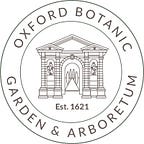The Fastest Wine in the World
We live in a fast world. We have fast food, fast fashion, fast internet, and fast cars. But wines are not known for being fast, in fact quite the opposite. The most expensive wines in the world are aged-reds, with the most expensive bottle ever sold being a Burgundy from 1945 [1]. Old wines have exciting provenances: featuring stories of battles[2], shipwrecks [3], and heartbreak [4]. What then, could the prospect of a fast wines offer against all these stories? Well, against all this aged-beauty comes a dynamic, fast-paced, and exciting wine, which captures the evanescent splendour of the harvest season. Perhaps then it is time that we reconsidered the ephemeral beauty of the fastest wine in the world: Beaujolais Nouveau.
Harvested on 13th September this year (2021), Beaujolais Nouveau is a light, fruity, red wine. It is made from Gamy grapes (Vinis vinifera var. Gamy) produced in the Beaujolais region in Eastern France. With a thin skin and low bitterness, the grapes capture the summer sun, and turns it into a bright and juicy must.
Whilst most wines are made simply by pressing, this isn’t the case for Beaujolais. Instead, the juice is fermented inside the grape in a carbon dioxide rich environment, a technique know as carbonic maceration. Following this, a gentle press releases the juice and leads to a fruity wine which is low in tannins. After pressing comes bottling and then it is ready for distribution.
This appears a quick process, and indeed, it is. The period between picking and bottling takes about 60 days, and the release is always the third Thursday in November — this year 18th November. It is this fast production which gives it its reputation as a fast wine, but it is also fast for a second reason. The simplicity of the nouveau wine makes it unsuitable for keeping, meaning that wines only keep about six months at a maximum.
This short shelf-life leads to a fleeting opportunity to encapsulate the spirit of the harvest and savour the taste of the summer. As a result of this brief window of opportunity, back in 1970s a race was started to be the first to bring the bottle back to the wine critics of London. Over the resulting decade, the race escalated, with cars giving way to trains and finally to the RAF, who decided to enter with a Harrier Jump Jet and completed the race in just 32 minutes.
So what lies underneath the anticipation so great that planes will fly through the night just to be the first ones to drink it? In short, a good party. By the end of October, the harvest of the final crops– potatoes and sugar beet, is completed and the winter wheat is drilled. Cattle have all been tucked up for the winter in their barns and the combine harvesters are back in storage. As the nights draw in the wine becomes ready, leading to the appetite and the respite required to celebrate the harvest. In this way it is the marriage of the ideal time with the ideal drink.
But what started as a harvest festival turned into a national celebration of autumn and new beginnings. These new beginnings are not just meteorological either, the celebrations are about bringing people together. They applaud the living of life to the fullest, the commemoration of living in the moment, and rejoicing at the here and now. In our incredibly fast world, the entirely ephemeral moments encourage us to make permanent memories. Nowhere demonstrates this more clearly than Japan, where spas host annual Beaujolais Nouveau baths[5]. The islands are the largest export market, with 50% exported bottles make the trans-Asiatic trip to the islands for the annual celebrations.
Whilst fleeting, the annual Beaujolais Nouveau with its celebrations are as fast as wine can be. They bring us together; they stimulate discussion; and they encourage us to have a good time. Old wines already have their own narratives, but new wines encourage us to write our own stories and to create memories that last a lifetime. The wines may be evanescent, but the experiences are eternal.
Andrew Wood
DPhil student at the University of Oxford
Department of Zoology
Having graduated from Somerville College in 2019 with a Double First in Biological Sciences, Andrew is now an Interdisciplinary Biosciences DPhil student based in the Department of Biology at the University of Oxford. His work focuses on examining the biological basis of quality in perennial crop systems, primarily focusing on grape vines and cacao trees. The project seeks to understand how climate impacts these agricultural systems, and therefore how to understand the future flavour of wine.
